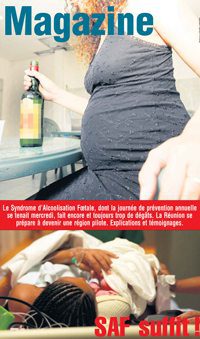Midwives’ knowledge, attitudes and practice about alcohol exposure and the risk of fetal alcohol spectrum disorder
Janet M Payne1*, Rochelle E Watkins1, Heather M Jones1, Tracy Reibel1, Raewyn Mutch1, Amanda Wilkins12, Julie Whitlock1 and Carol Bower1
Published : 5 November 2014
Abstract
BACKGROUND
Midwives are an influential profession and a key group in informing women about alcohol consumption in pregnancy and its consequences. There are no current quantitative Australian data on midwives’ knowledge, attitudes and practice in relation to alcohol consumption during pregnancy and Fetal Alcohol Spectrum Disorder. We aimed to reduce this knowledge gap by understanding midwives’ perceptions of their practice in addressing alcohol consumption during pregnancy.
This cross-sectional study was conducted at 19 maternity sites across the seven health regions of country Western Australia. A questionnaire was designed following review of the literature and other relevant surveys. Midwifery managers of the maternity sites distributed questionnaires to all midwives working in their line of management. A total of 334 midwives were invited to participate in the research and (n = 245, 73.4%) of these were eligible.
The response fraction was (n = 166, 67.8%). Nearly all (n = 151, 93.2%) midwives asked pregnant women about their alcohol consumption during pregnancy and (n = 164, 99.4%) offered advice about alcohol consumption in accordance with the Australian Alcohol Guideline, which states “For women who are pregnant or planning a pregnancy, not drinking is the safest option”. Nearly two thirds (n = 104, 64.2%) of the midwives informed pregnant women about the effects of alcohol consumption in pregnancy, they did not always use the recommended AUDIT screening tool (n = 66, 47.5%) to assess alcohol consumption during pregnancy, nor conduct brief intervention when indicated (n = 107, 70.4%). Most midwives endorsed professional development about screening tools (n = 145, 93.5%), brief intervention (n = 144, 92.9%), and alcohol consumption during pregnancy and FASD (n = 144, 92.9%).
CONCLUSION
Nearly all midwives in this study asked and advised about alcohol consumption in pregnancy and around two thirds provided information about the effects of alcohol in pregnancy. Our findings support the need for further professional development for midwives on screening and brief intervention. Policy should support midwives’ practice to screen for alcohol consumption in pregnancy and offer brief intervention when indicated.



